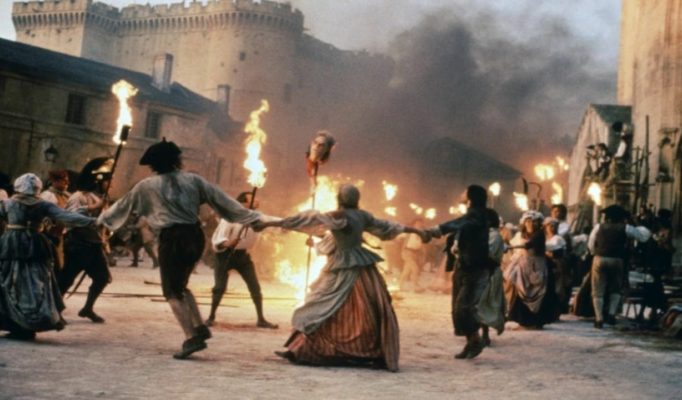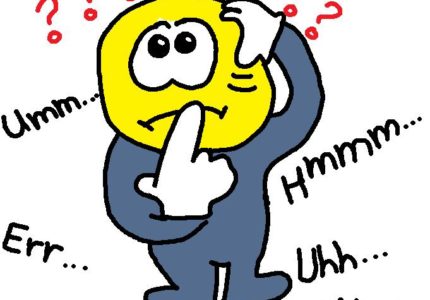One of the first questions I ask students when they come into my class is, “Why do we study history?” The responses are predictable, rooted in the old tripe that gets drummed into their heads by almost every history teacher they’ve had.
“So that we don’t repeat the same mistakes we made in the past.” They say that phrase with the pride of slaying a dragon. Yes! The first question asked and I killed it in this guy’s class.”
I usually smile, and then gently, as I don’t want to crush their spirits early on, ask them this: “How many times have we, as humans, repeated a ‘same mistake’”? In fact, how many times in your own life have you repeated a ‘same mistake’?” Once I have them thinking, then I go for the jugular. “How many times have your parents said this phrase, ‘If I have to tell you one more time…’”? The class smiles, almost to a person, and then we begin a discussion about history, its relevance, importance, and why we study it.
We don’t study history in order to not repeat the same mistakes, because we always do. Repeatedly. Over and over. And over. The primary reason we study history, at least to my mind is rooted in this phrase: We don’t know where we’re going until we understand where we’ve been. Think about that phrase for a moment, let it marinate just a little.
See, history is a recording of man’s journey through time. It is a record of our successes, failures, and accomplishments. It is also a way for us to add to our collective memory so that we can pass on what we’ve learned to successive generations in order that they may build upon what we’ve learned and improve themselves. This is what separates us from the animals; our ability to pass on our memories through various means, so that future generations can learn, build, add on, and then pass what they’ve learned. See the pattern?
So, with that in mind, let me pose a question. How far are we willing to go regarding government power and oversight?
History tells us that people are willing give up what liberty they have for handouts of every stripe. Leaders in every time period in history have used this axiom to their advantage. More than one Roman emperor used games to placate the populace and expand their power right under the nose of Rome’s finest. Senators went along with this too, as their power also increased should they be able to curry favor. Caesar, Nero, Vespasian all understood placating the masses for gain. All it took, for a time, were bread and circuses. Even a simple internet search will yield an abundance of examples as the ones above.
Sometimes, crises are manufactured by those in power in order to create the illusion of desperation, the populace being conditioned to believe all that comes down from the government is the gospel truth, never taking time to ruminate on the crisis. Why should they? If the government says it is so, and the media also say “this is so”, then it must be so, yes?
History has proven to us time and again that governments will use crisis, either real or imagined to extend their control over the population. When the “government line” is supported by mass media, well, the government’s argument is only magnified as the megaphone of media serves to repeat the message loud and clear. Dictatorships of the twentieth century knew this, as did our own government under FDR, who presided over the largest expansion of government power in the history of the United States with the creation of the New Deal.(1) What’s funny about the New Deal, is that it was a blatant attack on capitalism, supported by a president who hated big business, and advocated a redistribution of wealth. That’s what the New Deal was. What’s even funnier is that the press was generally against many of the New Deal programs, and actively wrote that FDR exceeded his mandate as President. Know what he called them? Here, I’ll let you read the quote as stated by Raymond Moley in his journals. Moley was a member of Roosevelt’s “Brains Trust”, a group of college professors that he leaned on when he wanted answers. Mr. Moley wrote after meeting with Roosevelt to tone down his rhetoric against big business:
…he then turned from that to a violent attack upon newspapers, saying that the newspapers had no moral indignation,…that all of these [newspapers – “he named a long list”] were guilty of falsifying news…He said that nothing would help him more [in the 1936 election] than to have it known that the newspapers were all against him.(2)
Sound familiar? See, history teaches us, if we’re willing to listen, that whenever there is a significant crisis, government will take that opportunity to expand and inject itself into our collective veins, under the guise of helping us get through said crisis. During the Great Depression, FDR instituted several “alphabet” programs, such as TVA, NRA, AAA, and others to specifically to impregnate this nation with big government. He believed that government was the answer to the problem. Many of his programs, the NRA specifically, were found unconstitutional, but were still implemented anyway, via other means. Programs that were popular among the populace, because they gave the illusion of progress, but were, in the end, failures, with most fair minded historians believing they extended the Great Depression by some seven years.
Lyndon Johnson’s Great Society further injected government into our lives as the protests during the Vietnam war and President Kennedy’s death opened the doors further. Johnson’s Great Society aimed to expand government by instituting programs to help the poor and passed Medicare and Medicaid. Seemingly good programs on the outside, but an example of big government expansion during a crisis. Further, it opened the door to government taking a huge stake in our school systems. Along with these programs, the national debt increased dramatically, as it did under FDR. Oh, yeah, taxes followed suit for all classes, as did government expenditures. More government, more taxation. It’s a simple formula. In case you’re wondering, FDR instituted a tax on the rich as well as big business, and there still wasn’t enough for his programs. More on that in a coming article.
Republicans are not immune to taking advantage during a crisis either. After 911, President Bush established the Patriot Act, passing with bi-partisan support.(3) The Act gave unprecedented powers to the government to spy, wiretap, and get into our lives and under our covers, all under the guise of protecting the nation. A large majority of the population agreed initially with the Patriot Act. “Anything to keep us safe”, they argued without taking into consideration the tacit, or maybe not so tacit erosion of Fourth Amendment (4) rights as guaranteed by the Constitution.
Agree or disagree, the point here is that these are examples of government using crises to enter the lives of everyday Americans, and an ever so slow erosion of our constitutional rights.
I should point out that there is a difference, and it is quite large, between “big government” and “intrusive” government. Most people, even the die hard “Tea Party” faction of the Republican party, are not willing to make cuts to Medicare, Medicaid, or Social Security (a massive government program begun by FDR). They see these as big government, but not intrusive. Besides, it would cost anyone in government voter support, and they all know this fact. Roosevelt himself said, when faced with extending excise taxes in 1939, “I am recommending the reenactment of the excise taxes which will expire in June and July of this year not because their collection has been perfected, our economy is adjusted to them, and we cannot afford at this time to sacrifice the revenue they represent.” (5) In other words, we got used to it.
Gun control, on the other hand, is considered intrusive as it violates the Second Amendment to many, which is why so many vehemently oppose it. Even Obama Care, with its mandatory purchase requirement was considered intrusive, again garnering significant pushback on that basis. The same can be said of federal land management. Many see that also as intrusive and not only that, oppressive. Smaller government programs often are more intrusive than the large tent programs.
The point here is this; how far are we willing to go, or allow, our government to control our lives for our own betterment and protection? Most of the time they do so under the guise of helping us, but to my mind, that reasoning suggests we are not capable of managing ourselves. During the Enlightenment period (1700’s) those philosophers thought the same thing about their populace and as such, fostered a “top down” approach to reforming society. Kings and Queens were better positioned, they reasoned, and more enlightened than the average person to implement change, so change should be implemented by government mandate. While most of the population during that period were unschooled, the implication was they could not grasp the ideas of free speech, free exercise of religion, and abolishing torture as punishment. Are we not better positioned than our eighteenth century forebears to reasonably address our own needs or must we rely on the government to be the answer to all our prayers?
Our current crisis, whether one believes it to be real or manufactured (as some are now saying), is another opportunity for government to further enter our homes, our workplaces, our lives. Each time a Governor makes a unilateral decision about “keeping the state closed” the door is pried open just a little further and the boot of government edges into our space just a little further, as it’s been doing under the guise of caring for us since the Woodrow Wilson administration. I am not advocating for civil disobedience or anything like that, I am simply asking the potential voter to think about the crisis at hand, to watch how the government reacts, both state and federal, and then decide if that is the direction you wish to continue…and vote accordingly. It is built into our Constitution…every two years we have the opportunity to change the entire face of who governs us, if only we have the will to exercise that mandate. Yes, there is a presidential election in 2020, but if you must be reminded, here it is…the President is NOT a king. He is but one third of our republic. The House, all of it, all four hundred thirty five members are up for re-election as is one-third of the Senate. If you are not happy with the current state of things, then exercise your right by voting your conscience, but let your conscience be guided by reason, not emotion or hatred of either person or party. Examine policy, ponder results, and vote your conscience.
A word of caution though. History proves that in almost every instance, once liberty is given up, or government programs begun, it is difficult if neigh impossible to wrest it back or end the program. It takes a gargantuan effort, unfortunately often ending in popular revolt or in the worst case, revolution. As Benjamin Franklin once said, “They who can give up essential liberty to obtain a little temporary safety deserve neither liberty or safety.” We are a nation founded on the idea of small government and individual liberty. Let us think long and hard about that come November.
- FDR tried to pack the Court in order to get his massive government programs passed, as one example, while also boosting tax rates, as well as sales taxes that fell upon the lower classes harder than the middle and upper classes.
- As quoted in Burton W. Folsom, New Deal or Raw Deal?: How FDRs Economic Legacy Has Damaged America (New York: Threshold Editions, 2009), p.134)
- The house vote was 357-66 in favor. The Senate vote was 98-1
- The amendment that protects against unreasonable searches and seizures.
- As quoted in Folsom, New Deal, p. 126.





